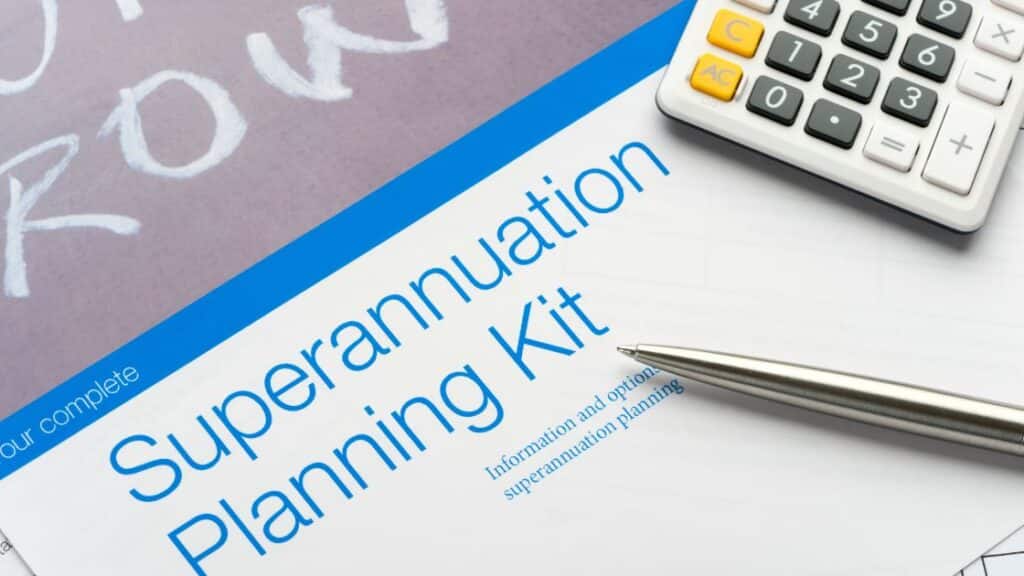
Estate Planning & Wills
At PDC Law, we specialise in comprehensive estate planning services to ensure your wishes are honoured and your loved ones are protected. Our expert team can assist you with:
- Wills: Crafting personalised wills, including complex Testamentary Trust Wills, to safeguard your assets.
- Enduring Powers of Attorney: Granting trusted individuals the authority to manage your financial and legal affairs.
- Appointment of Enduring Guardians: Appointing someone to make important health and lifestyle decisions on your behalf.
- Advanced Health Care Directives: Documenting your preferences for medical treatments and end-of-life care.
- Binding Death Benefit Nominations: Ensuring your superannuation benefits are distributed according to your wishes.
- Company Powers of Attorney: Facilitating the management of business interests with authorised representatives.
If you die without a Will, your estate will be distributed according to the law, which may not be in accordance with your wishes.
Frequently Asked Questions (FAQ)
A Will is a legal document where you outline how you would like your property and other assets (your “estate”) to be distributed after you die. A Will must be in writing and your signature witnessed by two witnesses over the age of 18 who are not included in your Will.
Why do I need a Will?
Having a Will ensures that your assets are distributed according to your wishes and can prevent potential disputes among family members.
Can I update my Will?
Yes, you can update your Will at any time. It’s important to review and revise your Will regularly to reflect any changes in your circumstances or wishes.
What happens if I die without a Will?
If you die without a Will (intestate), your estate will be distributed according to the laws of intestacy, which may not align with your personal wishes.
Who can be a witness to my Will?
Two witnesses over the age of 18 who are not beneficiaries or included in your Will can witness your signature.
Do I need a lawyer to write a Will?
While you can write a Will yourself, it’s advisable to consult a lawyer to ensure that your Will is legally valid and accurately reflects your wishes.
Appointing a Power of Attorney allows a trusted person to make financial and legal decisions on your behalf when you're unable to do so.
Frequently Asked Questions (FAQ)
Power of Attorney allows you to appoint a person to make certain financial and legal decisions on your behalf, such as how you manage your assets.
A General Power of Attorney often operates for a specific period of time and/or limits power to a specific event. For example, giving someone power to sell your home if you have moved overseas. If you lose capacity during this period of time, it will cease to operate.
Alternatively, an Enduring Power of Attorney continues to operate if you have lost capacity and are unable to make decisions for yourself. Your attorney will be able to continue to make decisions on your behalf in accordance with the terms of the document.
Establishing a Power of Attorney is a vital step in safeguarding your financial and legal interests by empowering someone you trust to make important decisions on your behalf when you’re unable to do so.
What is a Power of Attorney?
A Power of Attorney is a legal document that allows you to appoint someone to make financial and legal decisions on your behalf.
What is the difference between a General and an Enduring Power of Attorney?
A General Power of Attorney is valid for a specific period or event, while an Enduring Power of Attorney remains effective even if you lose capacity.
Who can I appoint as my attorney?
You can appoint any trusted individual over the age of 18, typically a family member, friend, or professional.
What decisions can my attorney make?
Your attorney can make financial and legal decisions as specified in the Power of Attorney document, such as managing your assets or selling property.
Appointing an Enduring Guardian ensures that someone you trust can make crucial medical, lifestyle, and health care decisions on your behalf when you're unable to do so.
Frequently Asked Questions (FAQ)
If there is ever an instance where you no longer have capacity to make decisions for yourself, it is important to have someone you trust making these decisions on your behalf.
What is an Appointment of Enduring Guardian?
An Appointment of Enduring Guardian is a legal document that allows you to designate someone to make personal, health, and lifestyle decisions for you if you lose the capacity to do so yourself.
Why is it important to appoint an Enduring Guardian?
Having an Enduring Guardian means your preferences regarding medical treatment and lifestyle choices are respected, even when you can’t communicate them yourself.
Who can I appoint as my Enduring Guardian?
You can appoint any adult you trust—typically a family member or close friend who understands your values and wishes.
How do I appoint an Enduring Guardian?
You need to complete the appropriate legal forms, and the appointment must be witnessed by an authorised person to be valid.
Can I have more than one Enduring Guardian?
Yes, you can appoint more than one person to act jointly or alternately, providing flexibility in how your decisions are managed.
An Advanced Health Care Directive lets you set specific instructions for your health care, ensuring your wishes are honoured when you're unable to make decisions yourself.
Frequently Asked Questions (FAQ)
Unlike an Appointment of Enduring Guardian document, which provides general powers to your enduring guardian to make decisions about your health and lifestyle, an Advanced Health Care Directive includes specific instructions for your health care in the event that you are unable to make decisions for yourself.
This document will include your specific instructions on what health care is acceptable and what is not acceptable to you. You may wish to consult with your regular doctor about this.
Your Enduring Guardians, treating health professionals, family and friends must follow this document.
What is an Advanced Health Care Directive?
An Advanced Health Care Directive is a legal document where you outline your specific health care preferences for situations when you cannot make decisions on your own.
How does it differ from an Appointment of Enduring Guardian?
While an Appointment of Enduring Guardian designates someone to make general health and lifestyle decisions on your behalf, an Advanced Health Care Directive provides explicit instructions that must be followed by your guardians and health professionals.
Who must follow my Advanced Health Care Directive?
Your Enduring Guardians, treating health professionals, family, and friends are legally required to adhere to the instructions outlined in your directive.
Should I consult my doctor when creating one?
Yes, it’s advisable to consult your regular doctor to discuss your health care preferences and ensure your instructions are clear and medically feasible.
A Company Power of Attorney is a legal document that allows a company to appoint a person, other than its officeholders, to act as the company's attorney. This appointed attorney can exercise the powers specified in the document, often including signing contracts, making decisions, and managing specific business affairs.
Frequently Asked Questions (FAQ)
A Company Power of Attorney doesn’t need to grant unlimited or long-term powers. It can be tailored for a specific period or purpose—for example, authorising an attorney to enter into a contract to purchase land on behalf of the company.
Common reasons for obtaining a Company Power of Attorney include:
- Director Unavailability: When a director is unavailable for an extended period, such as travelling or being out of contact.
- Unexpected Events: As a safeguard in case of sudden ill health or loss of capacity.
Why is a Company Power of Attorney important?
It ensures that your company can continue to operate effectively when directors are unavailable, preventing delays in decision-making and maintaining business continuity.
Who can be appointed as the company's attorney?
Any trusted individual who is not an existing officeholder of the company can be appointed, such as a senior employee or an external adviser.
Can the powers granted be limited?
Absolutely. You can specify the scope of authority, limiting it to certain actions or setting time frames during which the Power of Attorney is valid.
How do I establish a Company Power of Attorney?
Setting up a Company Power of Attorney involves drafting the legal document outlining the powers granted and having it properly executed. It’s advisable to consult with a legal professional to ensure it complies with all legal requirements.
Does a Company Power of Attorney override the directors' authority?
No, the appointed attorney acts within the powers specified and does not override the authority of the directors. They facilitate operations in the absence or unavailability of directors.
A Testamentary Trust Will is a Will that, upon your death, creates one or more discretionary trusts, enabling a trustee to manage your estate on behalf of the nominated beneficiaries. This arrangement offers a tailored approach to distributing your wealth, aligning with your specific wishes and the unique circumstances of each beneficiary.
Frequently Asked Questions (FAQ)
You can include explicit instructions in your Will on how the trustee should distribute your estate. These instructions can be as restrictive or as flexible as needed, depending on individual circumstances—such as providing protections in the event of a beneficiary’s relationship breakdown or shielding assets from creditors.
These trusts are established after you pass away and can serve as an effective asset protection and wealth management strategy, ensuring your legacy is preserved and allocated according to your intentions.
What is a Testamentary Trust Will?
A Testamentary Trust Will is a legal document that sets up one or more trusts upon your death. It allows a trustee to manage and distribute your estate to your nominated beneficiaries under the terms you’ve specified.
How does a Testamentary Trust benefit my beneficiaries?
It provides greater control over the distribution of assets, offers potential tax advantages, and protects assets from external risks such as creditors or relationship breakdowns involving beneficiaries.
Can I specify conditions for how the funds are used?
Yes, you can set conditions and guidelines on how and when beneficiaries receive distributions, tailoring the trust to meet specific needs or circumstances.
Who should I appoint as the trustee?
You can appoint a trusted individual, a professional trustee, or a combination of both. The trustee should be someone capable of managing the trust responsibly and in accordance with your wishes.
Is a Testamentary Trust Will suitable for everyone?
While it offers significant benefits, it’s most advantageous for individuals with substantial assets, complex family situations, or specific concerns about asset protection. Consulting with a legal professional can help determine if it’s right for your estate planning needs.
How does it differ from a standard Will?
Unlike a standard Will, which distributes assets directly to beneficiaries, a Testamentary Trust Will places assets into a trust managed by a trustee, providing ongoing control and protection over how assets are used.
A Binding Death Benefit Nomination ensures your superannuation benefits are distributed to your chosen beneficiaries according to your wishes upon your passing.
Frequently Asked Questions (FAQ)
Superannuation is considered a “non-will asset,” meaning it does not automatically form part of your estate upon your passing. To effectively manage any benefits payable by your superannuation fund, you should have a Binding Death Benefit Nomination in place.
A Binding Death Benefit Nomination is a formal notice to the trustee of your superannuation fund, directing where your superannuation death benefits will go when you pass away. Without this nomination, or if you have a Non-Binding Death Benefit Nomination, the trustee is not bound by your directions and may exercise discretion in deciding how to distribute your death benefits, which may not align with your wishes.
Why is a Binding Death Benefit Nomination important?
Having a Binding Death Benefit Nomination ensures that your superannuation death benefits are paid to the beneficiaries you have nominated, rather than leaving this decision to the trustee’s discretion.
Who can I nominate as a beneficiary?
You can nominate dependants such as your spouse, children, or someone in an interdependent relationship with you, as well as your legal personal representative (the executor of your estate).
What happens if I don't have a Binding Death Benefit Nomination?
If you don’t have a Binding Death Benefit Nomination, the trustee of your superannuation fund will decide how to distribute your death benefits. This may result in your benefits going to individuals you may not have intended.
Do Binding Death Benefit Nominations expire?
Yes, in many cases, Binding Death Benefit Nominations expire every three years unless they are non-lapsing. It’s important to check with your superannuation fund and renew your nomination as needed.
How can I set up a Binding Death Benefit Nomination?
You can set up a Binding Death Benefit Nomination by completing the required form provided by your superannuation fund. It typically needs to be signed by you and witnessed by two adults who are not beneficiaries.
Can I change my Binding Death Benefit Nomination?
Yes, you can update or revoke your nomination at any time by submitting a new nomination form to your superannuation fund.
Is a Binding Death Benefit Nomination the same as a Will?
No, superannuation is considered separately from your Will. A Binding Death Benefit Nomination deals specifically with your superannuation death benefits and ensures they are distributed according to your wishes.
Legal Expertise
Proceed with confidence.
PDC Law is a specialist commercial, property and dispute resolution law firm. Our lawyers have a combined experience of over 40 years.
Related Articles
Explore more articles related to Estate Planning & Wills
- Protect Your Children’s Future with Mutual Wills: Insights from PDC Law, Bad Debts? 6 Steps to Preparing a Statutory Demand 2024, Buying property with friends and relatives – be aware of the pitfalls!"}" data-page="1" data-max-pages="1" data-start="0" data-end="0">













